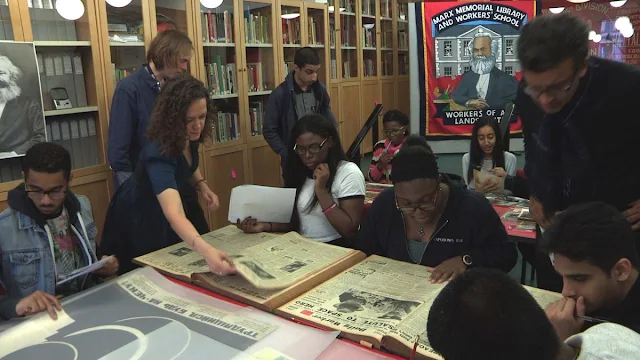By Bhabani Shankar Nayak
On the evening of July 15, 2025, a roundtable discussion was held at the Marx Memorial Library in London, organised by Friends of Socialist China in the UK. The event brought together UK-based participants and a delegation from the Institute of Marxism at the Chinese Academy of Social Sciences (CASS), a research institution established by the Communist Party of China (CPC).
The discussion aimed to exchange views on China's development and governance models. Professor Chen Zhigang, Vice President of CASS, led the Chinese delegation. He addressed topics including rural development in China, the concept of socialism with Chinese characteristics, and aspects of governance associated with Xi Jinping’s leadership. Professor Chen also discussed China’s stance on globalisation and outlined a vision of international cooperation based on mutual benefit.
The event featured simultaneous interpretation by Han Dongjun, and additional contributions were made by Liu Yan, Fang Tao, and Zhuo Mingliang, who provided perspectives on recent developments in China. UK-based attendees asked a range of questions, which the Chinese delegates responded to during the discussion. The conversation included a focus on ideological perspectives, development challenges, and the evolving role of political institutions.
The roundtable concluded with an informal dinner at Hiba Restaurant in Holborn. Attendees continued their conversations over food and drinks in a relaxed setting. The Chinese delegates came from various backgrounds and age groups. Observers noted a collegial atmosphere among them, with open and equal interaction across roles.
The gathering also prompted reflections on how cultural and political frameworks are understood and taught, particularly in relation to China. Some participants questioned the applicability of widely used academic theories when interpreting Chinese social and political behaviour, suggesting the need for more nuanced and grounded analysis.
As the evening drew to a close, delegates exchanged farewells and expressed interest in continuing such engagements. The event underscored the value of academic and political exchanges in fostering mutual understanding across national and ideological contexts.


Comments